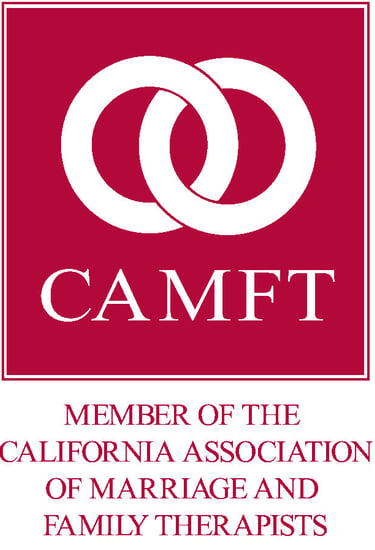Against the Tide of Anxiety: Buildings Secure Relationships
Understanding attachment styles can be transformative. This is true for those grappling with anxious attachment, a topic beautifully unpacked in Leslie Becker-Phelps’s book, Insecure in Love. In this post, I’ll explore the key takeaways from the book and how therapy can help you move toward more secure, fulfilling connections.
ATTACHMENT THEORYRELATIONAL THERAPYBOOK RECOMMENDATION COUPLE THERAPY


"Try not to resist the waves; let them carry you to the shore." — Rumi
Anxiety, like the ocean, moves in tides—sometimes gentle, sometimes overwhelming. It can pull us under, making us feel isolated, adrift, and uncertain. In these moments, relationships can either serve as life rafts or intensify the storm. Understanding how to build secure connections is essential for navigating anxiety and fostering emotional well-being.
The Link Between Anxiety and Relationships
Anxiety doesn't exist in a vacuum. It often seeps into our relationships, shaping how we perceive closeness, conflict, and trust. When we feel uncertain or ungrounded internally, we may unknowingly seek to get our emotional needs met in ways that put pressure on our relationships. Some people respond by clinging tightly to others, fearing abandonment. Others withdraw, fearing rejection. These patterns, deeply rooted in our attachment histories, can reinforce cycles of anxiety and disconnection.
Secure relationships, on the other hand, act as a stabilizing force. When we feel safe and understood, our nervous system relaxes, and our anxious thoughts lose their grip. But how do we cultivate security in our connections, especially when anxiety threatens to push us into old, unhelpful patterns?
Understanding Anxious Attachment
Anxious attachment develops when early experiences with caregivers were inconsistent—sometimes responsive, sometimes neglectful. This unpredictability can lead to a deep-seated fear of abandonment and a tendency to seek excessive reassurance in relationships. Those with anxious attachment may:
Worry excessively about their partner's feelings and commitment.
Feel a strong need for closeness but fear being "too much."
Experience heightened sensitivity to perceived rejection or distance.
Struggle with self-worth, relying on external validation for reassurance.
While these patterns can feel overwhelming, they are not permanent. Awareness and intentional effort can help individuals move toward more secure attachments.
Building Secure Relationships: What It Takes
Creating security in relationships is an active process, one that requires intentional effort and self-awareness. Here are some foundational elements:
1. Developing Self-Awareness
Understanding our own triggers and attachment tendencies is the first step. Do you tend to seek reassurance frequently? Do you shut down when emotions become too intense? Recognizing these patterns helps us move toward rewarding interactions rather than acting from a place of unconscious fear.
2. Practicing Emotional Regulation
When anxiety surges, our ability to connect meaningfully can diminish. In fact, there are biological components to this. When our nervous systems are mobilized in fight, flight, freeze, the energy it would take to maintain rewarding connection goes to protecting us from a real or perceived threat. Insight, along with strategies like deep breathing, grounding exercises, and mindfulness can help regulate emotions, allowing us to approach relationships from a place of clarity rather than reactivity.
3. Cultivating Open and Honest Communication
Secure relationships thrive on transparency. Expressing needs and fears directly—rather than through passive-aggression, withdrawal, or people-pleasing—builds mutual trust and understanding. Saying, "I'm feeling anxious and could use some reassurance" is far more effective than expecting a partner to read our minds. Keeping in mind that these are muscles to be built which psychotherapy in San Francisco can be of use.
4. Choosing Emotionally Available People
Not all relationships can or should be made secure. If someone is consistently dismissive, unavailable, or critical, it may not be possible to foster a secure bond. Investing in relationships where emotional safety is reciprocated is key. With that in mind, couple therapy in San Francisco can be transformative toward this end.
Conflict is inevitable, but in secure relationships, disagreements don’t spell disaster. What matters is how we repair. Acknowledging hurt, taking responsibility, and offering reassurance allows trust to deepen rather than erode.
A Book Recommendation: "Insecure in Love" by Leslie Becker-Phelps
For those looking to deepen their understanding of attachment and how insecurity can impact relationships, Insecure in Love by Leslie Becker-Phelps is an invaluable resource. This book provides insightful guidance on how anxious attachment shapes interactions and offers practical strategies for cultivating self-worth and emotional security in relationships. Becker-Phelps emphasizes self-compassion as a pathway to healing and provides actionable steps to break free from unhealthy attachment patterns. The book also helps readers:
Recognize their attachment patterns and how they play out in relationships.
Develop self-compassion to foster emotional security from within.
Learn communication techniques that support healthy, connected relationships.
Shift from anxious to secure attachment through intentional practice and reflection.
Final Thoughts
Anxiety may be an unavoidable part of life, but it doesn’t have to control our relationships. By fostering security—both within ourselves and with others—we create a foundation of stability that allows us to navigate life’s uncertainties with greater resilience. As Rumi suggests, instead of resisting the waves, we can learn to ride them, knowing we are not alone in the journey.
Couple Therapy in San Francisco
Couples therapy in San Francisco can help partners recognize and overcome attachment dynamics that create tension—whether one partner feels anxious and seeks reassurance or another tends to withdraw. Through facilitation of a safe and protected environment along with practical strategies, therapy fosters balance and deeper emotional connection.
Click here now to set up a free consultation to learn more about couple therapy options.





